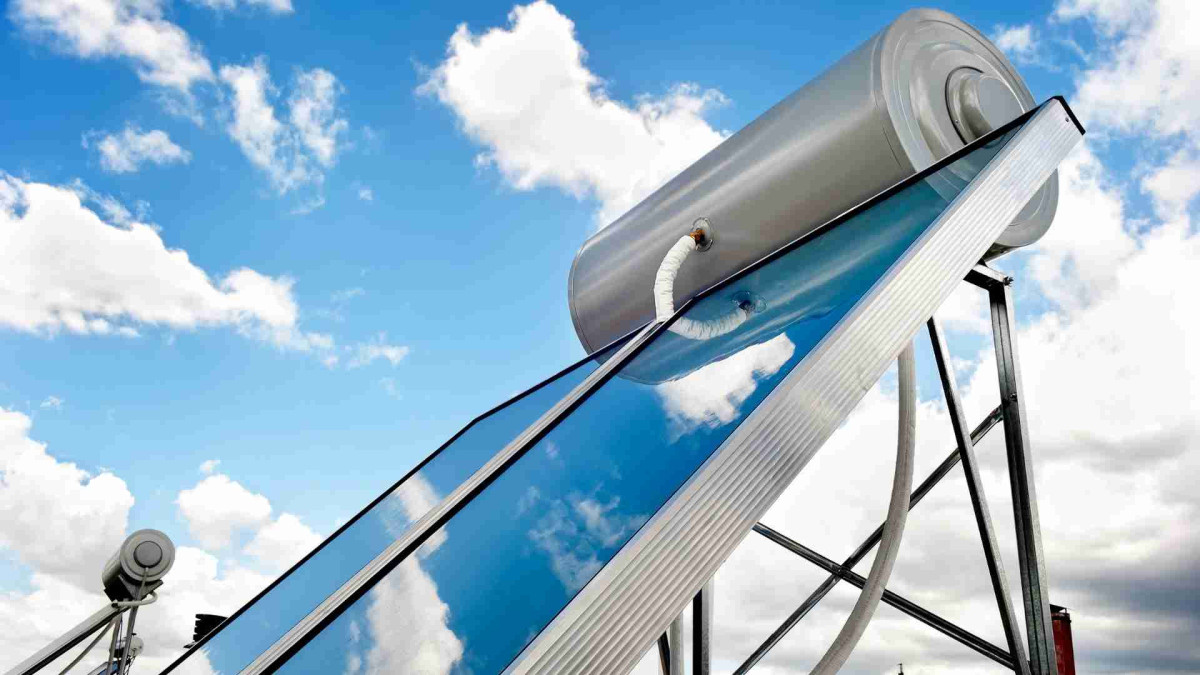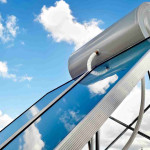Expanding Solar Geyser Installation Harness the Power of the Sun
Johan’s Plumbing Services, a leading solar geyser installer, expands its solar geyser installation services.
The surge in demand for solar geyser installations is evident in South Africa, primarily due to the escalating frequency of power outages in the region. The pursuit of sustainable, renewable energy resources has propelled the shift towards leveraging the infinite and clean energy of the sun. Solar power has proven to be an efficient solution to numerous energy requirements.
"There are several benefits to installing a solar geyser. The primary advantage is the cost-effectiveness. While the initial cost to install a solar geyser might be on the higher side, the operational costs are very low. Solar water heating does not use electricity, and the upkeep is minimal. If you use the services of a seasoned solar geyser plumber and install the system properly, with regular maintenance and checks, leakages are non-existent.” a solar specialist at Johan’s Plumbing Services in Port Elizabeth explains.
Solar geyser installation, the process
The process of solar geyser installation begins by calculating the best system size and variant based on a household's hot water requirements. Geographical location and local weather conditions also influence this decision. Professionals then identify an area with the most daytime sun, typically on the rooftop, making sure no obstructions (trees or buildings) could cast a shadow over the solar collector.
In direct (or open-loop) systems, the solar collector is connected to the water storage tank via pipes. Water flows through the solar collector, absorbing solar heat before it is stored in the tank. These systems are ideal for areas with warmer climates where the risk of freezing temperatures is minimal.
Indirect or closed-loop solar geyser installation uses the following process to heat the water:
Sunlight is absorbed by the solar collector and is converted into thermal energy.
A heat transfer fluid, often a blend of water and antifreeze (glycol), is circulated through the solar collector, soaking up the thermal energy.
This heated fluid is then transported through a series of pipes to the heat exchanger that is connected to the water storage tank.
Within the heat exchanger, the thermal energy from the heated fluid is transferred to the water, while keeping the two fluids separate. The system uses coils or plates that create a barrier between the fluids, yet allow for efficient heat exchange.
The heat transfer fluid, which would be cooler by this time, returns to the solar collector to convert more solar energy into heat, and in the process repeat the cycle.
Closed-loop systems are used in colder climates, as the antifreeze properties of the heat transfer fluid prevent freezing. Moreover, this minimizes corrosion and scale build-up in the solar collector, thereby extending the system's lifespan and maintaining its efficiency.
Both types of systems distribute the heated water throughout the household as necessary. It's advisable to install a backup heater to guarantee a steady supply of hot water during periods of low solar radiation.
Plumbers ensure that the installed system integrates seamlessly with the property's existing plumbing and heating infrastructures. Conducting tests to verify the successful operation of the solar geyser installation is also a necessary step in the process.

Variables to take into consideration when installing a solar water heater
Location: The installation site significantly influences the efficiency of the solar geyser. Regions with higher solar radiation and extended sunlight hours are most favorable to heat water using sunlight. It is important to ensure that no trees or buildings cast a shadow on the solar panels.
Solar collector (panels or tubes) tilt and orientation: Plumbers installing solar geysers normally choose rooftops that get the most sun every day as installation sites. The tilt of the solar collector, which is the angle between the collector and the horizontal surface, also plays a crucial role. Solar water heaters installed at the correct tilt (angle) absorb the most solar radiation absorbed by the collector and enhance the efficiency of the solar geyser.
The tilt angle should be equal to the geographical latitude of the location. For instance, a location with a latitude of 40 degrees would ideally have the collector tilted at a 40-degree angle. Some adjustments might be necessary to accommodate seasonal changes in the sun's position. Furthermore, the collector should face directly south in the Northern Hemisphere and directly north in the Southern Hemisphere.
Geyser Size: The size of the solar geyser to be installed is a vital decision that hinges on the household's hot water demand, sunlight availability, and necessary storage capacity. A general rule of thumb is to allocate 1.85 square meters of collector area per person in the household and about 5.7 to 7.6 liters of storage per square foot of collector area.
Plumbing and System Integration: The chosen solar geyser must be compatible with the existing heating system. This assessment includes checking the suitability of the current storage tank, evaluating the compatibility with the circulation system, and exploring the possibility of integration with traditional water heaters for backup during periods of reduced sunlight.
Regulations and Incentives: In South Africa, the South African Bureau of Standards (SABS) sets the solar geyser installation standards, ensuring safety, quality, and performance. Standards such as SANS 1307 for domestic solar water heaters and SANS 10106 for the installation, maintenance, and repair of solar water heating systems must be adhered to. Additionally, the installer must hold a plumbing qualification recognized by the Plumbing Industry Registration Board (PIRB). Certain municipalities may also have specific regulations for solar geyser installations.
Compliance with these regulations not only ensures the safe and effective operation of solar geysers but may also make homeowners eligible for incentives and rebates.
It is recommended to consult with a professional, certified, solar geyser plumber for a site visit and consultation to choose the most suitable, eco-friendly solar geyser installation based on your location, weather conditions, and household or business needs.
For more information, or to get a quote contact Johan’s Plumbing Services team.
Also, see our previous article about our best-rated plumbers in Port Elizabeth and surrounding areas.





























